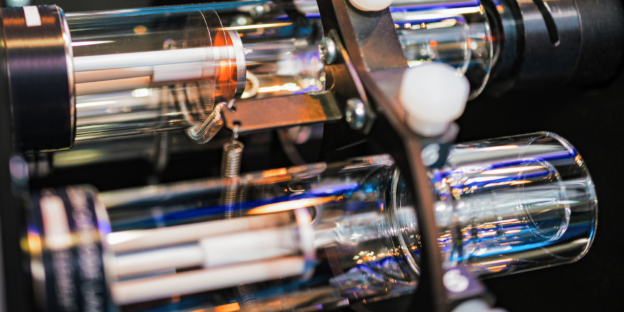- Why should I buy pre-owned scientific equipment?
Pre-owned equipment is cost-effective because the price tag is typically a fraction of the cost of new instruments. For labs just getting started or labs facing budget constraints or needing to allocate funds elsewhere, purchasing pre-owned equipment is a viable option.
- How do I ensure the preowned equipment meets my lab’s standards and requirements?
Like purchasing new equipment, you should determine your lab’s requirements and compare them with the equipment’s specifications. You can also request these details from the seller and ask for a demonstration.
- Is used lab equipment reliable?
Reputable sellers will thoroughly test and refurbish pre-owned equipment to ensure it meets performance standards. If you are buying from the owner, ask how they maintained the equipment to determine if the instrument was well-maintained.
- What types of warranties and support are available for used lab equipment?
Vendors can offer warranties and maintenance services similar to what you would expect with new equipment. It’s important to check with the seller about the specifics of their warranty and any available support services.
- What should I do if the preowned equipment needs repairs or maintenance?
Ask if the seller offers maintenance and repair services. You can also establish relationships with local service providers who specialize in the types of equipment you use to ensure ongoing support and maintenance.
- Can pre-owned lab equipment keep up with current scientific standards and technology?
Often, the technology in preowned equipment is still highly relevant and capable of performing necessary tasks. While newer models might have additional features, the core functionalities required for many scientific procedures remain consistent. Referencing the product description on the manufacturer’s website can help you determine this.
- What should I look for when buying used lab equipment?
Verify the equipment’s condition, maintenance history, and the seller’s reputation. Check that the equipment has been tested and whether or not it was refurbished. Request documentation of any testing or refurbishments done.
- How can I verify a seller’s reputation?
Look for reviews and testimonials from previous customers. Reliable sellers will often have positive feedback and a strong reputation in the scientific community. Check industry-specific forums, social media groups, and review sites where buyers share their experiences with different vendors.
- How do I verify the functionality of pre-owned scientific equipment?
Request documentation of the equipment’s maintenance history and any refurbishments performed. Many reputable sellers will also provide certification of testing and calibration to ensure the equipment is functioning correctly.
- Are there environmental benefits to buying pre-owned scientific equipment?
Purchasing used equipment is environmentally friendly. It promotes the principles of reduce, reuse and recycle, helping to minimize waste and reduce the carbon footprint associated with manufacturing new equipment. Read more about reducing E-waste.
- How does buying used equipment affect long-term costs and budgeting?
Initial costs are significantly lower, allowing for better allocation of resources. Additionally, well-maintained used equipment can have a long lifespan, and the availability of warranties can mitigate unexpected repair costs.
- What risks are there about preowned lab equipment?
Concerns about equipment being defective, having a short lifespan, or lacking support and warranties can be dispelled by purchasing from reputable sources that guarantee quality and support. You can also request documentation of maintenance and refurbishing to ease any concerns.

